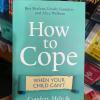Greetings Ms. Hari,
We are writing to you as a group of students, scientists-in-training if you will. Collectively, we study all different aspects of the science of food: food microbiology, food chemistry, functional foods, food processing and variety of other disciplines that make it possible for people to have safe and healthy food. The contents of this letter outline several of the concerns we have taken with your movement, and in the spirit of intelligent debate, we implore you to read this letter in its entirety. Our passion for the field of food science and the awareness of how food can affect health, among other aspects of human life, are what have motivated us to reach out to you.
Because we believe everyone should be involved in an open discussion on food, we would like to congratulate you on the movement you have been able to cultivate. You have amassed an impressive number of followers in a short time. We would also like to thank you for highlighting a problem involving the science of food and the food industry, because we believe there is an incredible lack of communication. Everybody eats, and our food supply is growing to be more diverse and complicated than ever. Thus, it is important that individuals, like yourself, ask questions about food and how it arrives to our plates. It is the responsibility of food developers, microbiologists, engineers, nutrition professionals etc.–experts in the field– to answer these questions, and it is unfortunate that until recently these questions were met with relative silence. It is our hope that this situation improves, and you can bet that many of us contributing to this letter will attempt to address this problem in the future.
We read with great interest your recent post in which you responded to those who have openly disagreed with you. It truly is deplorable that some of your critics choose to rebut in such an inappropriately personal manner. However, because we believe in open discussion on food, we do take issue with your oversimplification of science and how you portray the next generation of students trying to feed a growing population. You have claimed to appreciate the work of food and nutritional scientists, but the language in your posts is insulting and attacks our profession—without really understanding what we do. In a time when sound science is needed more than ever, why do you so openly choose to ignore and vilify it?
As students of food science, we have chosen to train extensively in a field that is under growing pressure to feed a projected world population of 9.6 billion by the year 2050. There are few other professions that have the sheer capacity to impact literally every human being on this planet. Feeding this many people will be a challenge that we must solve in a sustainable and healthy manner that is both socially responsible and based on actual scientific consensus. We would like to point out some examples of how your approach is not practical for achieving this goal:
You preach organic and “non-GMO” eating as the only option for healthy living. This may have worked for you as you transformed your lifestyle, and it may work for others. There has been no substantial evidence proving organic products provide greater health outcomes than their conventional counterparts, and no credible study has shown that GMO crops, proven to be substantially equivalent to native crops, are deleterious to one’s health. Buying these usually higher-priced food items may be a possibility for you and others, but the majority of consumers do not have the means to purchase these products. These consumers need to know that organic/non-GMO food is not a necessary component of healthy eating, as scientific consensus has gathered thus far. An example of a more realistic, and impactful, message to spread is the importance of eating fruits, vegetables, and whole grains.
There is also something to be said about your reductionist approach to interpreting food labels. Perhaps the most famous example of this was when you concluded that eating Subway’s bread was equivalent to eating yoga mats due to a chemical commonality between the two. To this same end, you point out that the U.S. permits certain additives which other, mainly European, countries have banned. We can just as easily list additives banned in the U.S. that are not banned in other countries- cyclamates (a sweetener) and amaranth dye to name a few. These types of arguments honestly prove nothing, use no science-based evidence, and represent a flawed logic that is misleading to your readers.
We do applaud your more recent efforts to use peer-reviewed literature in some of your posts. However, we must point out that your interpretation of scientific data is not always justified. Truly, this is an incredibly difficult skill to master, as correlation is so easily interpreted as causation. It is always tempting to cite epidemiological studies, work done with cells and animals, or even personal anecdotes as definitive proof. However, designing a study that accurately represents real-life practices of a diverse population is a difficult task. Therefore, it takes a large body of work to build scientific consensus. While a degree is not a necessary requirement to interpret and share your opinion on scientific data, it takes a well-trained eye to discern what is fact and what is conjecture being portrayed as fact. Please continue to use these types of peer-reviewed sources, but be critical as you do so.
It is all too tempting for us to use this opportunity to pick apart your investigations individually. Instead we will take your attacks in stride and use them as motivation to further our scientific prowess and do a better job in communicating good science to the public. Imagine the impact you could have if you did the same. Instead of being known as a fear monger or sensationalist, you could be someone who institutes real, meaningful, and lasting changes to the food supply. The battles you have picked thus far do not even begin to tackle the REAL issues challenging the future of food. You don’t need to change your opinions, but you could make more progress in your efforts by understanding and working with, not against, the scientific community and food industry.
Sincerely,
Matt Teegarden















